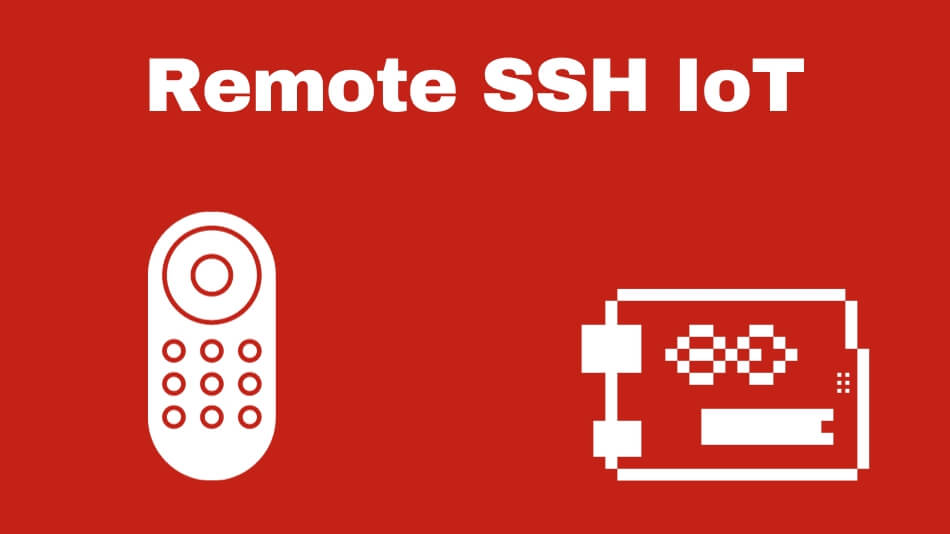Best IoT SSH Web Server: Your Ultimate Guide To Securing And Managing Smart Devices
So, you’re diving into the world of IoT and need an SSH web server that can handle all your smart devices, right? The best IoT SSH web server isn’t just about performance; it’s about security, scalability, and ease of use. Imagine having a setup where you can remotely manage your IoT gadgets from anywhere in the world without worrying about hackers or downtime. Sounds awesome, huh? Well, buckle up because we’re about to break it all down for you.
Whether you're a tech enthusiast, a small business owner, or someone who just loves automating their home, finding the right SSH web server for your IoT setup is crucial. Think of it like the brain of your smart device network. It’s what keeps everything running smoothly and securely.
In this guide, we’ll explore everything you need to know about the best IoT SSH web servers. From understanding what SSH really means to diving into the top options available, we’ve got you covered. And hey, don’t worry if some terms sound a bit technical—we’ll make sure to explain them in a way that even your grandma could understand.
- Aliceroseblum Onlyfans Your Ultimate Guide To The Rising Star
- Wasmo Muqdisho Telegram Link 2024 Your Ultimate Guide To Stay Connected
What is an IoT SSH Web Server?
Alright, let’s start with the basics. An IoT SSH web server is essentially a server that allows you to manage and control your Internet of Things (IoT) devices securely over the internet. SSH, or Secure Shell, is a network protocol that provides encrypted communication between your devices and the server. It’s like having a secret handshake that only you and your devices know, making it super hard for hackers to break in.
Why do you need one? Well, imagine this: you’re on vacation in Bali, and you suddenly remember you left your smart thermostat on full blast. With an IoT SSH web server, you can log in from your phone, adjust the settings, and save yourself a massive electricity bill. Pretty cool, right?
Key Features of an IoT SSH Web Server
Now that you know what it is, let’s talk about what makes a good IoT SSH web server. Here are some features you should look for:
- Alice Rosenblumm Leaks The Untold Story Behind The Viral Sensation
- Aliceroseblum Onlyfans Leaks The Truth Facts And Everything You Need To Know
- Security: Encryption, firewalls, and regular updates are a must.
- Scalability: Can it handle more devices as your setup grows?
- Remote Access: The ability to manage devices from anywhere in the world.
- Compatibility: Works seamlessly with different types of IoT devices.
- Easy Setup: You don’t want to spend days configuring it, do you?
Why Choose an IoT SSH Web Server?
So, why not just use a regular web server? Great question! Regular web servers are great for websites, but they’re not designed with the unique needs of IoT devices in mind. IoT devices often require real-time data processing, secure connections, and the ability to handle a large number of simultaneous connections.
An IoT SSH web server, on the other hand, is specifically built for these tasks. It ensures that your devices are always connected, secure, and performing at their best. Plus, with the rise of smart homes and industrial IoT applications, having a dedicated server is becoming more of a necessity than a luxury.
Security Concerns and Solutions
Let’s face it—security is a big deal when it comes to IoT. With so many devices connected to the internet, the risk of cyberattacks is higher than ever. That’s where an IoT SSH web server shines. It uses advanced encryption protocols to protect your data and devices from unauthorized access.
Here are some security features you should look for:
- Two-factor authentication
- Regular security updates
- Firewall protection
- Encrypted data storage
Top 10 Best IoT SSH Web Servers
Alright, let’s get to the good stuff. Here are the top 10 IoT SSH web servers that we think are worth checking out:
1. Node-RED
Node-RED is an open-source tool designed for wiring together hardware devices, APIs, and online services. It’s perfect for beginners who want to get started with IoT without diving too deep into coding. Plus, it integrates seamlessly with SSH for secure connections.
2. Mosquitto
Mosquitto is an open-source message broker that implements the MQTT protocol. It’s lightweight, fast, and super reliable. If you’re looking for a server that can handle a large number of devices, Mosquitto is a great choice.
3. NGINX
NGINX is a high-performance web server that’s widely used in IoT applications. It’s known for its speed, scalability, and ease of use. If you’re looking for a server that can handle heavy traffic, NGINX is definitely worth considering.
4. Apache
Apache is one of the most popular web servers in the world, and for good reason. It’s highly customizable, secure, and supports a wide range of protocols, including SSH. If you’re already familiar with Apache, setting it up for IoT shouldn’t be too difficult.
5. Lighttpd
Lighttpd is a lightweight web server that’s perfect for small to medium-sized IoT setups. It’s easy to configure and doesn’t require a lot of resources, making it ideal for devices with limited processing power.
6. Flask
Flask is a micro web framework written in Python. It’s great for building custom IoT applications and integrating SSH for secure connections. If you’re a Python developer, Flask might be the perfect choice for you.
7. uWSGI
uWSGI is a web server that supports multiple protocols, including SSH. It’s highly scalable and can handle a large number of concurrent connections. If you’re looking for a server that can grow with your IoT setup, uWSGI is worth considering.
8. Caddy
Caddy is a modern web server that focuses on security and ease of use. It automatically configures SSL certificates and supports SSH out of the box. If you want a server that’s secure and easy to set up, Caddy is a great option.
9. HAProxy
HAProxy is a high-performance load balancer that’s perfect for large IoT setups. It supports SSH and can handle thousands of connections at once. If you’re managing a large number of devices, HAProxy is definitely worth looking into.
10. OpenSSH
OpenSSH is a free and open-source SSH server that’s widely used in IoT applications. It’s secure, reliable, and easy to configure. If you’re looking for a simple and effective way to secure your IoT devices, OpenSSH is a great choice.
How to Choose the Right IoT SSH Web Server
With so many options available, choosing the right IoT SSH web server can be overwhelming. Here are some factors to consider:
- Your budget
- The number of devices you need to manage
- Your technical expertise
- The specific features you need
- Compatibility with your existing setup
Take your time to evaluate each option and choose the one that best fits your needs. Remember, the right server can make a huge difference in the performance and security of your IoT setup.
Cost Considerations
Cost is always a factor when choosing any technology. Some servers are free and open-source, while others require a subscription or licensing fee. Make sure to factor in the cost of setup, maintenance, and any additional features you might need.
Setting Up Your IoT SSH Web Server
Now that you’ve chosen your server, it’s time to set it up. Here’s a step-by-step guide to help you get started:
- Install the server software on your device.
- Configure the SSH settings for secure connections.
- Connect your IoT devices to the server.
- Test the setup to ensure everything is working properly.
- Monitor and maintain your server regularly.
It might sound complicated, but with the right guidance, setting up an IoT SSH web server is actually pretty straightforward.
Common Mistakes to Avoid
Here are some common mistakes to avoid when setting up your IoT SSH web server:
- Not using strong passwords
- Ignoring security updates
- Not backing up your data
- Overloading the server with too many devices
Future Trends in IoT SSH Web Servers
The world of IoT is evolving rapidly, and so are the servers that power it. Here are some trends to watch out for:
- Increased focus on security
- More integration with AI and machine learning
- Improved scalability and performance
- Greater emphasis on user-friendly interfaces
Stay ahead of the curve by keeping an eye on these trends and adapting your setup accordingly.
Expert Insights
According to a recent study by Gartner, the number of IoT devices is expected to reach 25 billion by 2030. This growth will put even more pressure on IoT SSH web servers to handle larger loads and provide better security. Experts recommend investing in servers that can scale with your needs and offer robust security features.
Conclusion
So, there you have it—everything you need to know about the best IoT SSH web servers. From understanding what they are to choosing the right one for your needs, we’ve covered it all. Remember, the right server can make a huge difference in the performance and security of your IoT setup.
Now, it’s your turn to take action. Whether you’re just starting out or looking to upgrade your existing setup, don’t hesitate to explore the options we’ve discussed. And hey, if you found this guide helpful, don’t forget to share it with your friends and leave a comment below. We’d love to hear your thoughts!
Stay safe, stay connected, and happy IoT-ing!
Table of Contents
- What is an IoT SSH Web Server?
- Why Choose an IoT SSH Web Server?
- Top 10 Best IoT SSH Web Servers
- How to Choose the Right IoT SSH Web Server
- Setting Up Your IoT SSH Web Server
- Future Trends in IoT SSH Web Servers
- Conclusion



Detail Author:
- Name : Mr. Francisco Kuhlman
- Username : kenton70
- Email : abbey68@yahoo.com
- Birthdate : 1976-11-04
- Address : 4609 Price Shore New Geraldside, NY 54692
- Phone : (458) 888-1408
- Company : Jerde-Gorczany
- Job : Home Health Aide
- Bio : Inventore labore voluptas tenetur temporibus at voluptates sed. Debitis repellendus incidunt laborum dolores sunt. Quasi a iure nulla fuga eos voluptas et exercitationem.
Socials
tiktok:
- url : https://tiktok.com/@ahansen
- username : ahansen
- bio : In aut quae laborum eos in.
- followers : 4473
- following : 789
facebook:
- url : https://facebook.com/hansen1980
- username : hansen1980
- bio : Rerum dolor ipsa esse eaque rerum dolorum occaecati.
- followers : 6448
- following : 379